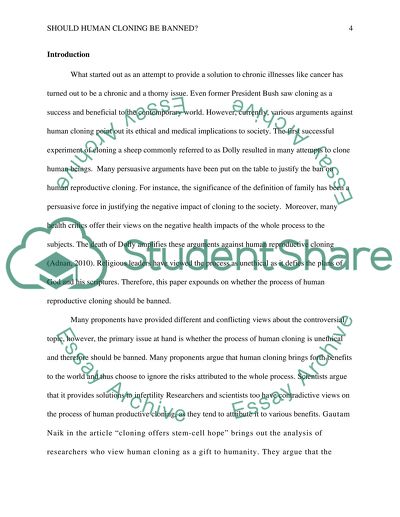Cite this document
(“Should Human Cloning Be Banned Assignment Example | Topics and Well Written Essays - 1750 words”, n.d.)
Should Human Cloning Be Banned Assignment Example | Topics and Well Written Essays - 1750 words. Retrieved from https://studentshare.org/sociology/1498839-argumentative-research-essay
Should Human Cloning Be Banned Assignment Example | Topics and Well Written Essays - 1750 words. Retrieved from https://studentshare.org/sociology/1498839-argumentative-research-essay
(Should Human Cloning Be Banned Assignment Example | Topics and Well Written Essays - 1750 Words)
Should Human Cloning Be Banned Assignment Example | Topics and Well Written Essays - 1750 Words. https://studentshare.org/sociology/1498839-argumentative-research-essay.
Should Human Cloning Be Banned Assignment Example | Topics and Well Written Essays - 1750 Words. https://studentshare.org/sociology/1498839-argumentative-research-essay.
“Should Human Cloning Be Banned Assignment Example | Topics and Well Written Essays - 1750 Words”, n.d. https://studentshare.org/sociology/1498839-argumentative-research-essay.


